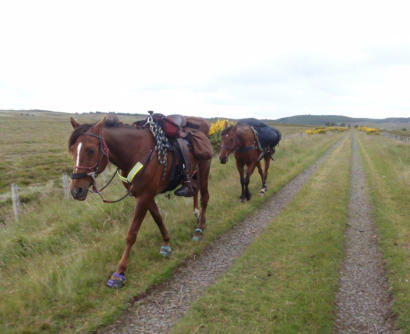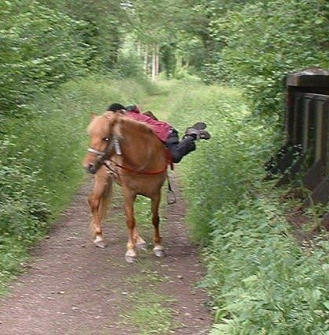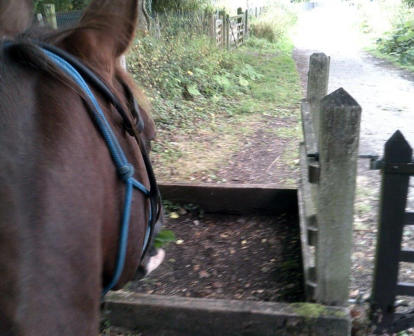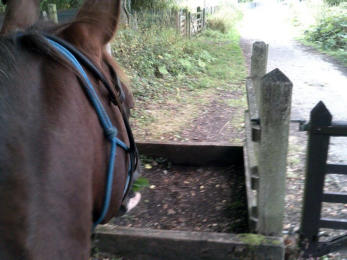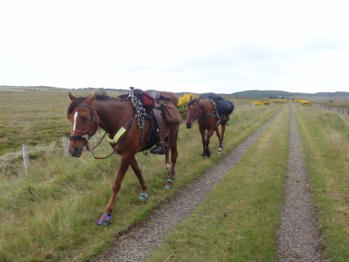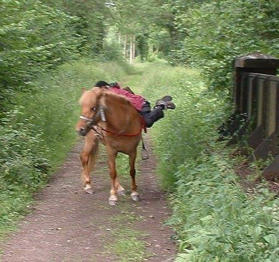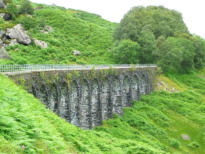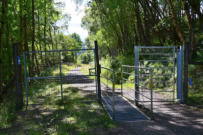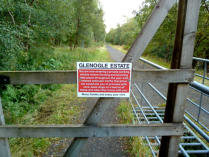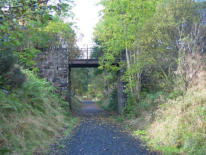
© Lorem ipsum dolor sit Nulla in mollit pariatur in, est ut dolor eu eiusmod lorem
OLD RAILWAYS ON HORSEBACK
Glen Ogle Trail
In 1842 The Queen made her initial visit to the Highlands in Scotland with
Prince Albert. She travelled to Taymouth Castle by boat and from then along
Loch Tay to Auchmore, a trip of 14 miles. Following that she went overland to
Killin, Glen Ogle, Lochearnhead, St Fillans and Crief to Drummond Castle, a
further 30 miles. She would have benefited if the Scottish Central Railway and
Calledonian Railway had been conceived as an Act in Parliament in 1845 and
built!
The line was begun as 10 miles from Doune and Dunblane along the River
Teith and opened in 1858. The Killin section in 1886. Too late for her
Majesty! The section extended to Tyndrum via Killin passing Lochearnhead
(now the Glen Ogle trail) and opened in 1873. The last train was planned for
September 1965, but there was a substantial rock fall in Glen Ogle which was
too expensive to remove so the line was closed at that point.
*Follow the Rob Roy Way Sustrans 7 northwards, towards Killin, on the Old
Military Road from the Glen Ogle Cottages to get to the final railway line into
the village.*
Grid Ref: NN 583 223 From Endchip south of Lochearnhead on the A84. Parking in
Lochearnhead
Grid Ref: NN 562 339 Killin. Parking
Note: Grid Ref : NN 5800 2300 This is Sustrans 7 and should, being in Scotland, be
an open access path to all users, but we have found two photos of the same gate on
the trail. It looks like it was accessible to equines when the photos were snapped. If
you ride this route please let us know if you can pass through and we will update
this page.
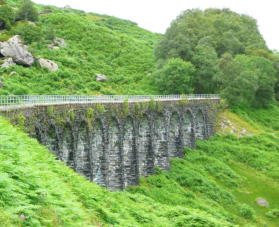
© Copyright Gordon Brown and licensed for reuse
under this Creative Commons Licence.
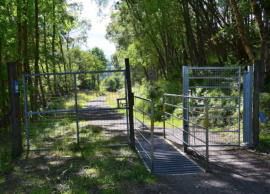
Glen Ogle Line © Copyright Jim Barton and licensed
for reuse under this Creative Commons Licence.
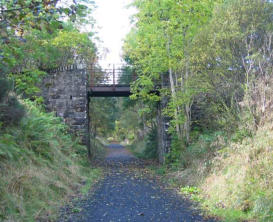
Glen Ogle Line © Copyright Rob Burke and licensed
for reuse under this Creative Commons Licence.
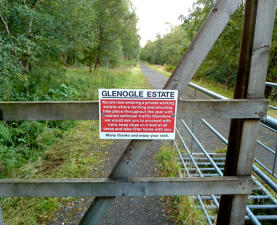
© Copyright Anthony O'Neil and licensed for reuse
under this Creative Commons Licence.






